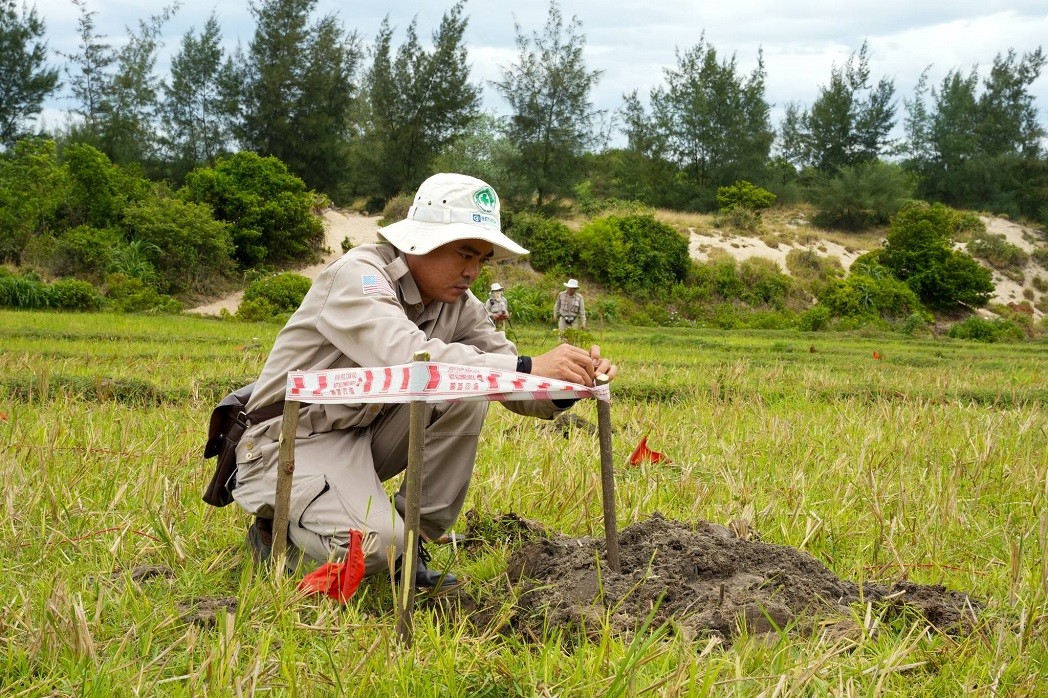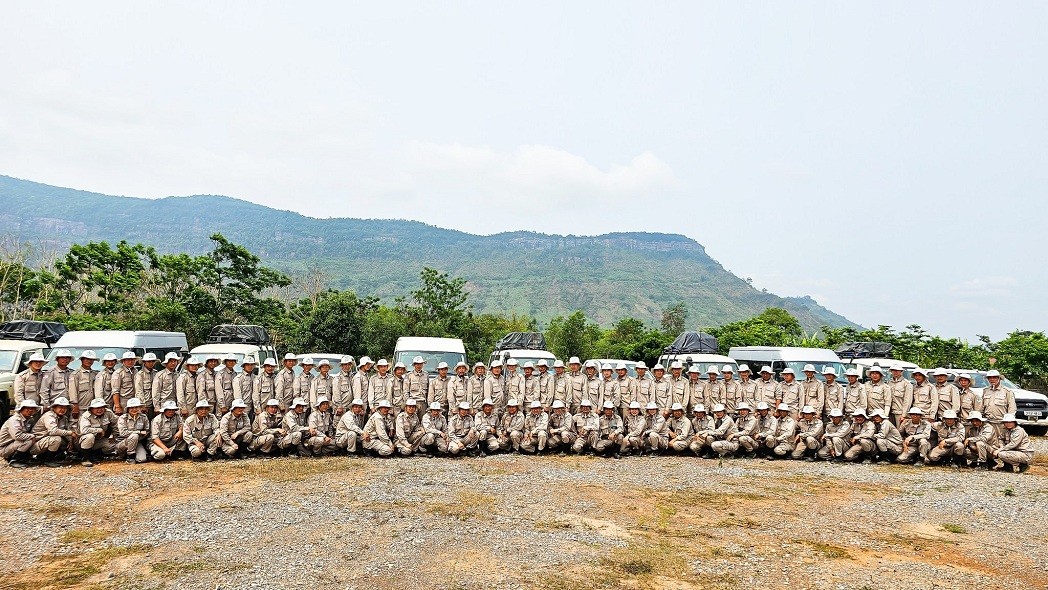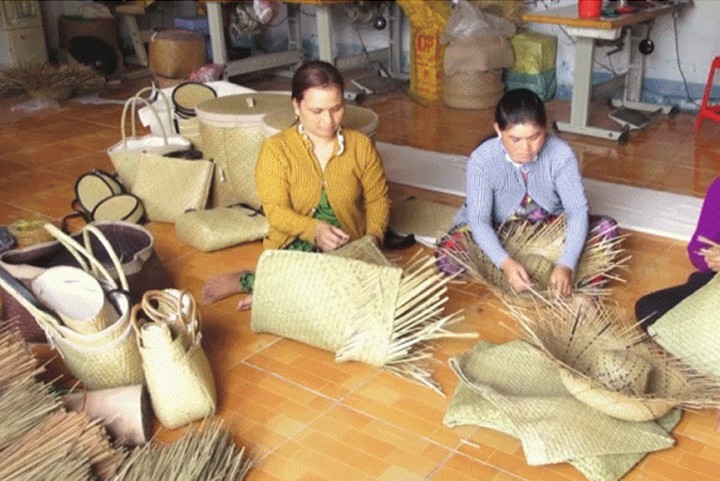Norway Helps Detect Explosive Pollutants in Vietnam's Soil
Norwegian People’s Aid (NPA), one of Norway’s largest non-governmental organizations, is conducting an assessment of the influence of ageing explosives in a pilot project that investigates the link between post-war bomb and mines and agricultural soil pollution in Vietnam.
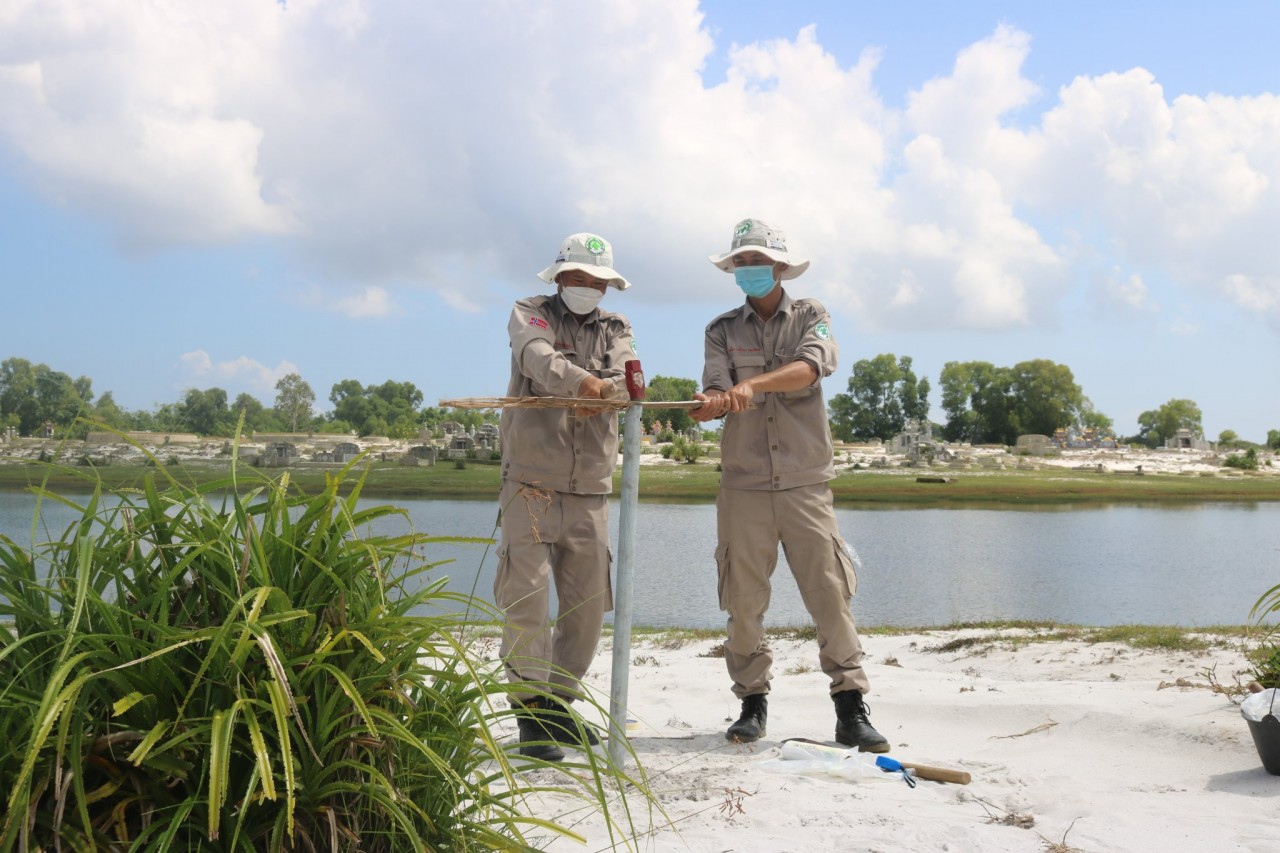 |
| NPA’s team collects a soil sample from an area with known contamination from explosive ordnance in Thua Thien Hue. Photo courtesy of NPA Vietnam |
Involved in mine clearance activities in Vietnam since 2008, NPA Vietnam, is seeking answers to one key question: Do ageing munitions in Vietnam pose a significant threat to the environment as they degrade, by contaminating agricultural soil with heavy metals or other chemicals?
Most unexploded bombs in Vietnam remain from conflicts during the 1960s and 1970s, with potentially millions of items lying in the soil for up to 60 years. In which, the central province of Thua Thien-Hue is one of the provinces that has the highest level of pollution by mines and bombs, with more than 170,400ha or 35% of the province's total area.
“Bombs and explosives lying in the ground for a long time can cause heavy impacts on the soil,” Le Dinh Phong, NPA provincial operations manager in Thua Thien Hue, said. “This is due to the oxidation of metals from the shells of explosives, changes in soil substances, and pollution of heavy metals such as iron, copper, aluminum and explosive components.”
While some studies indicate a high concentration of toxic elements has been found in military-impacted zones, limited work has been done in Vietnam to specifically look at the potential impact of heavy metals or chemicals from aged munitions impacting the surrounding environment.
In a pilot project currently being conducted in Thua Thien Hue province, NPA has trained experienced non-technical survey (NTS) team members to collect soil samples from areas with known contamination from explosive ordnance, and are working with a local university to test these samples for potential heavy metal residue from explosives.
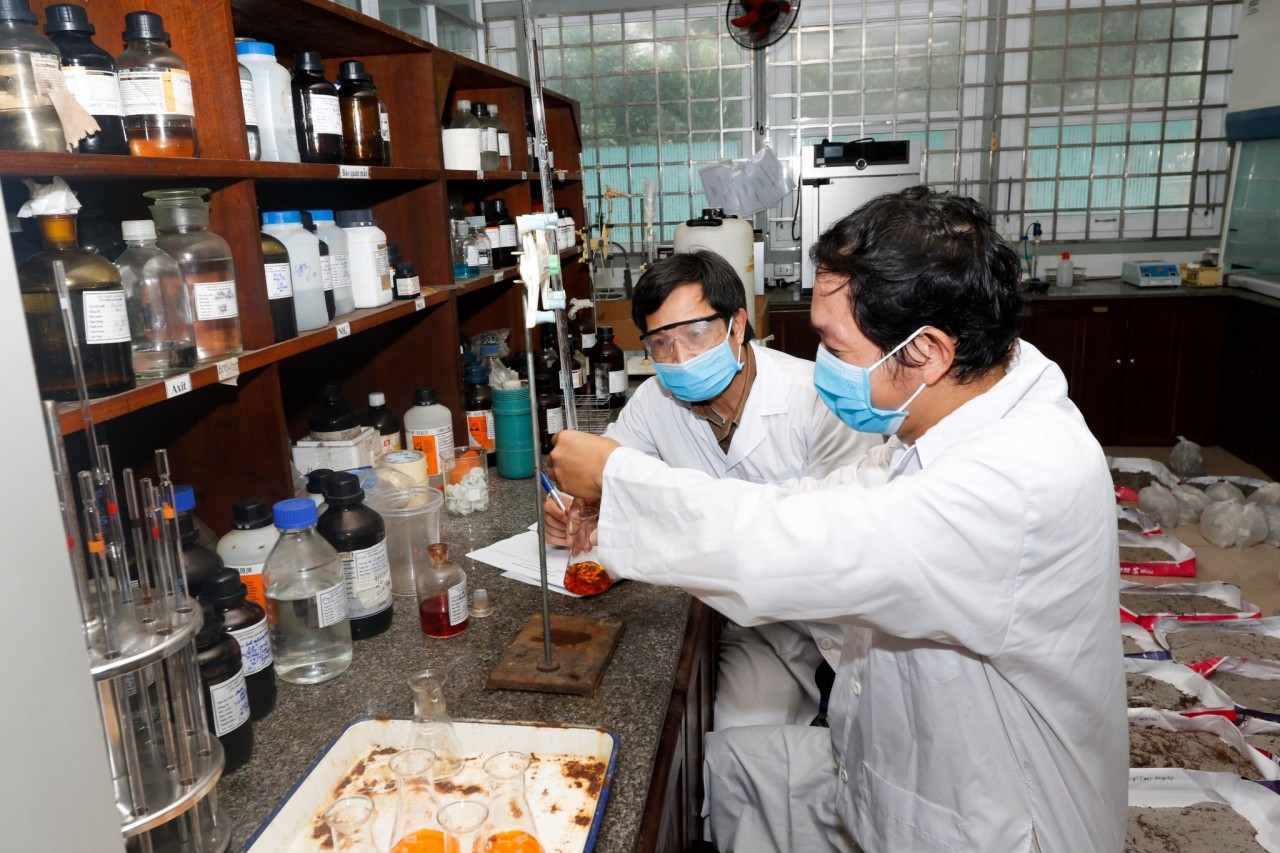 |
| Dr Ho Dac Thai Hoang (left) and an IREN technician conduct analysis of soil samples at the laboratory in Hue city. Photo courtesy of IREN, Hue University. |
Dr Ho Dac Thai Hoang, director of the Institute of Resources and Environment (IREN) at Hue University, oversees the laboratory where soil samples are tested for heavy metal contamination.
The need to assess the heavy metal residue and leakage of explosive materials from war remnants is gradually being noticed as agricultural pressures, and particularly the demand for organic products, rise.
However, knowledge on the actual impacts of soil contamination from explosive ordnance is lacking.
“There are still no continuous and seamless studies [of soil contamination from explosive ordnance] in Hue,” Dr Hoang said.
“Only intermittent and qualitative rather than quantitative studies are organized, but hopefully, in the future, the research will receive more attention to better suit the needs of farmers, landowners, and producers.”
While NPA awaits the completion of the laboratory work on soil samples – expected by early 2022 – there is an overwhelming amount of qualitative evidence indicating that corroding explosive ordnance may be having a negative impact on the environment.
“I have seen that plants and bushes grow poorly in areas with explosive ordnance compared to other places,” recalled a landowner who had soil samples collected from his farmland in Luong Mai village. “Crops also grow slowly with low yield, while other places seem much better.”
Vo Linh Vu, head of Luong Mai village, shared similar concerns.
“Many areas with explosive ordnance are abandoned. Many places have substances that have leaked from ordnance, causing weeds to burn. There are many places where trees can’t grow, some with dense primary forest nearby,” Vu said. “Environmental pollution due to toxic substances, including heavy metals from bombs and mines, has affected the health, life and income of people. People just want a safe environment to live and cultivate their land.”
NPA’s experienced staff in Thua Thien Hue province have also noticed potential links during mine action activities.
Tran Hong Phuong, team leader of one NTS team conducting soil in a village in A Luoi district along Hue’s mountainous border with Laos, which has unusable water and soil due to chemical contamination.
To conduct the soil sampling, two of NPA’s experienced NTS teams were trained to collect soil samples in an area previously confirmed to be contaminated with explosive ordnance through NPA’s routine mine action activities.
Six personnel were trained to identify sample locations using existing NPA information management tools used during NTS and collect and label soil samples taken from different depths at a given GPS location. The methodology is quick to learn and implement, making it easy to replicate in other areas if this pilot project is a success.
Following the collection of samples, the soil is transported to IREN’s laboratory in Hue City to undergo testing for a number of heavy metals. A total of 64 soil samples from Luong Mai village will be tested.
At the same time, testing on the nutrient properties of the soil will also be conducted, and NPA’s NTS personnel will interview people from 100 households in Luong Mai village to understand the needs and current practices of land use in the village, specifically relating to the use of land and agricultural opportunities and setbacks in the area where soil samples were collected.
This information, combined with the laboratory results, will help inform a realistic recommendation for optimising land use and promoting sustainable land management.
The results of the project will be shared with Luong Mai village and specifically the landowners, through a number of reports, digital soil maps and community training sessions.
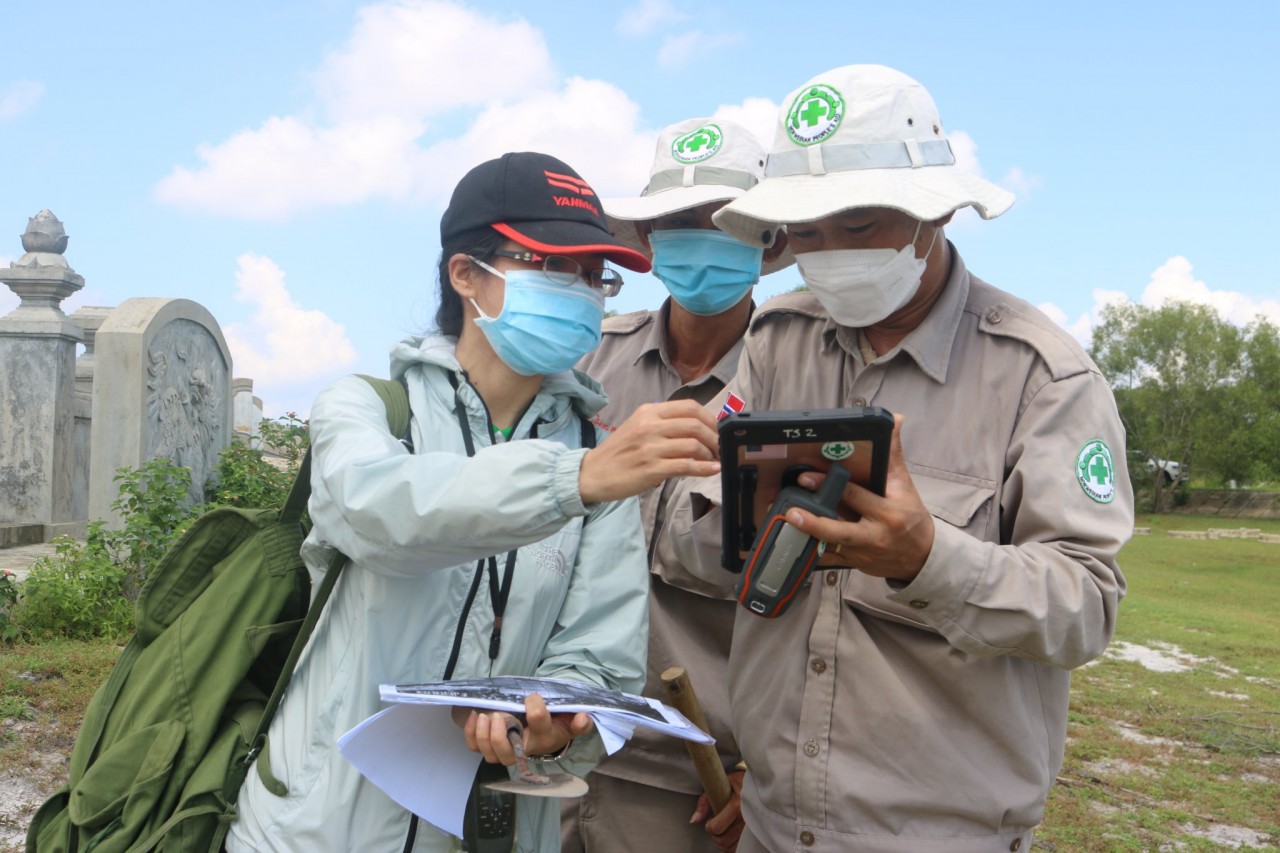 |
| Members of NPA’s NTS team in Thua Thien Hue, complete training on the collection of soil samples under the guidance of an IREN technician. The NTS pair is using a GPS and iPad to identify a pre-determined location to collect the sample from. Photo courtesy of NPA Vietnam |
The land where soil samples were collected will be used primarily for seasonal crops including peanuts, cassava and yams; low-value forestry such as acacia trees; and grazing livestock and poultry.
“If the area is polluted, I will still cultivate because of economic difficulties,” the head of Luong Mai village said. “I have no other choice. I really want to clean up the pollution so that I can cultivate and expand production with peace of mind. But I do not know where to look for help.”
According to Dr Hoang, solutions will be proposed to fix residues through the use of corresponding flora to store pollutants, structural solutions or other neutralization solutions. “We prefer an environmentally friendly method by immobilizing residues on plants with long and perennial lifespans.”
Nguyen Kinh, head of Commune of Luong Mai village highlighted the necessity for the community to have knowledge about the current situation, and advice on suitable livestock and plants to bring higher incomes for local people.
"Continued contamination will not be beneficial to people or the environment. This is a legacy of war that people living here are still being affected by,” said Kinh.
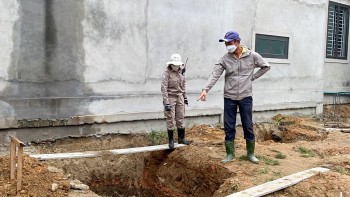 | Quang Tri Race to Become UXO-Free in 2025 Quang Tri is doing its best to become the first province to be safe from UXOs. |
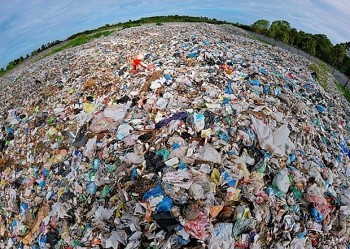 | USAID, Vietnam's Ministry Work to Tackle Climate Change and Environmental Pollution The collaboration will focus on air quality management; integrated water resource management and water security; conservation and sustainable use of biological diversity; ocean plastic, solid ... |
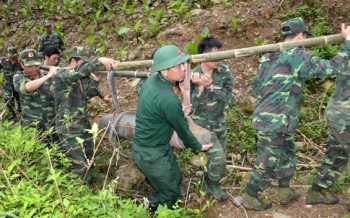 | Vietnam Gives Priority To Ensuring Rights Of Landmine and UXO Victims The Ministry of Labour, Invalids and Social Affairs (MOLISA) recently organized a workshop on promoting support for landmine and unexploded ordnance (UXO) victims where experts ... |
Recommended
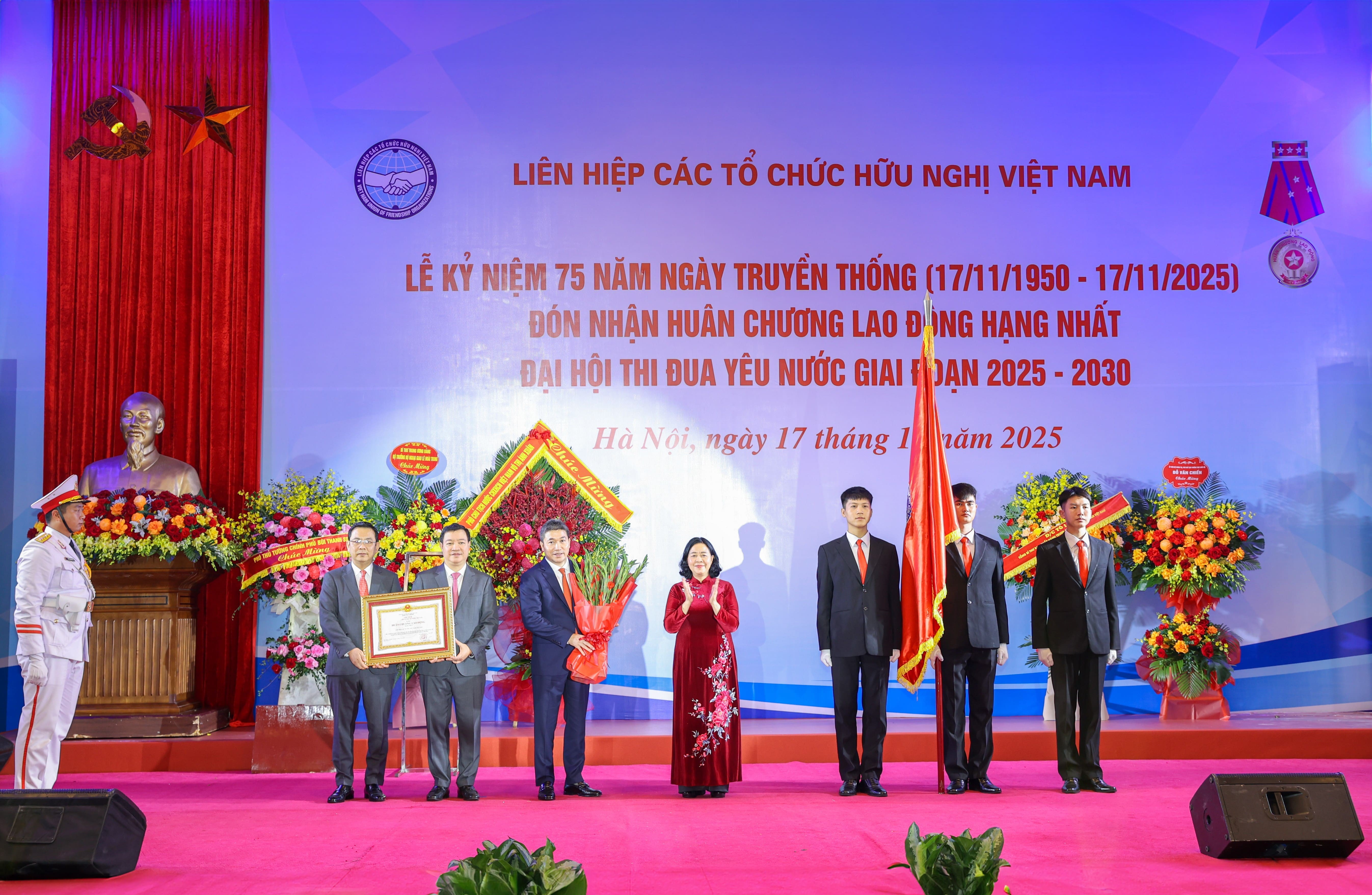 Friendship
Friendship
People-to-People Diplomacy: Change to Reach Further
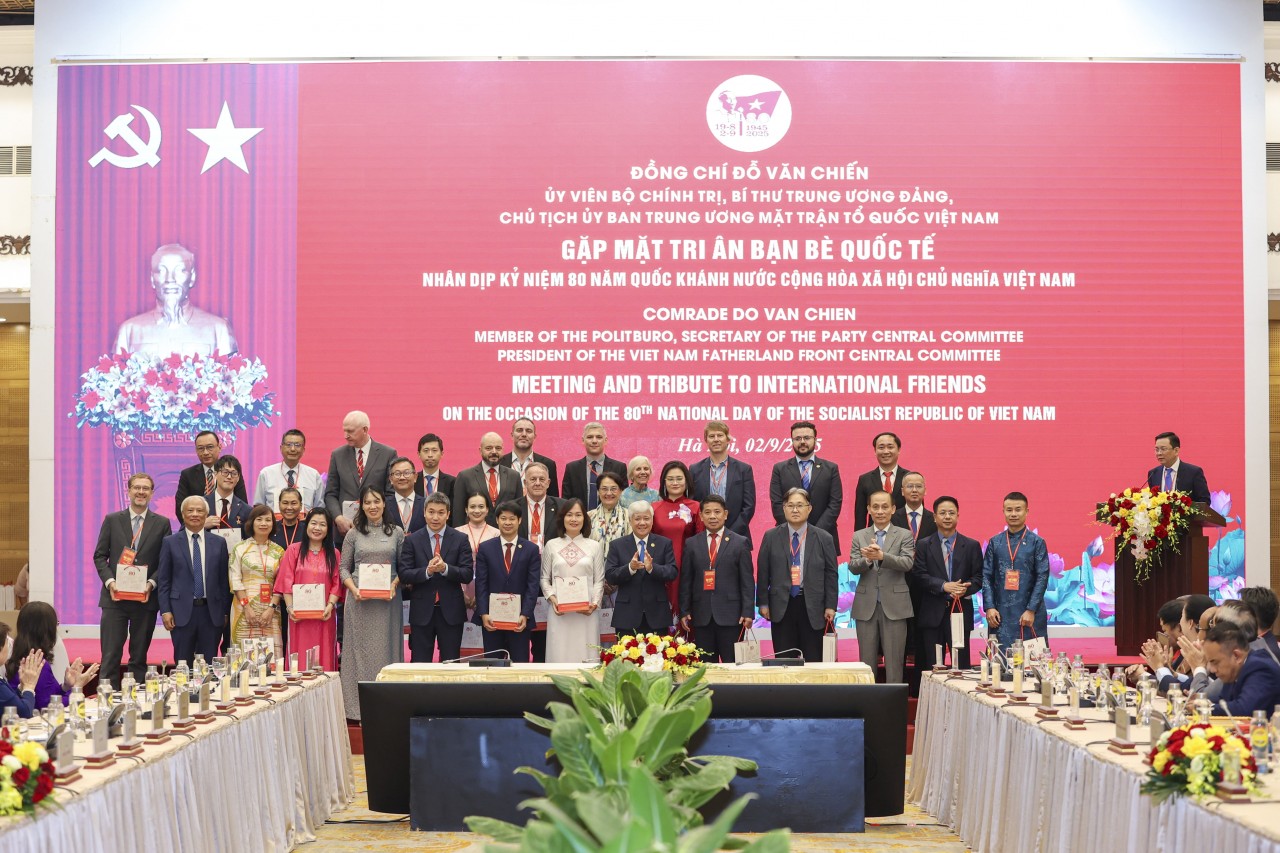 Focus
Focus
Outstanding Highlights of Viet Nam’s People-to-People Diplomacy in 2025
 Friendship
Friendship
Hanoi Union of Friendship Organizations: Spreading Values of Peace in Heart of Capital
 Friendship
Friendship
G4 Ambassadors to Vietnam Extend Greetings for the New Year of the Horse
Popular article
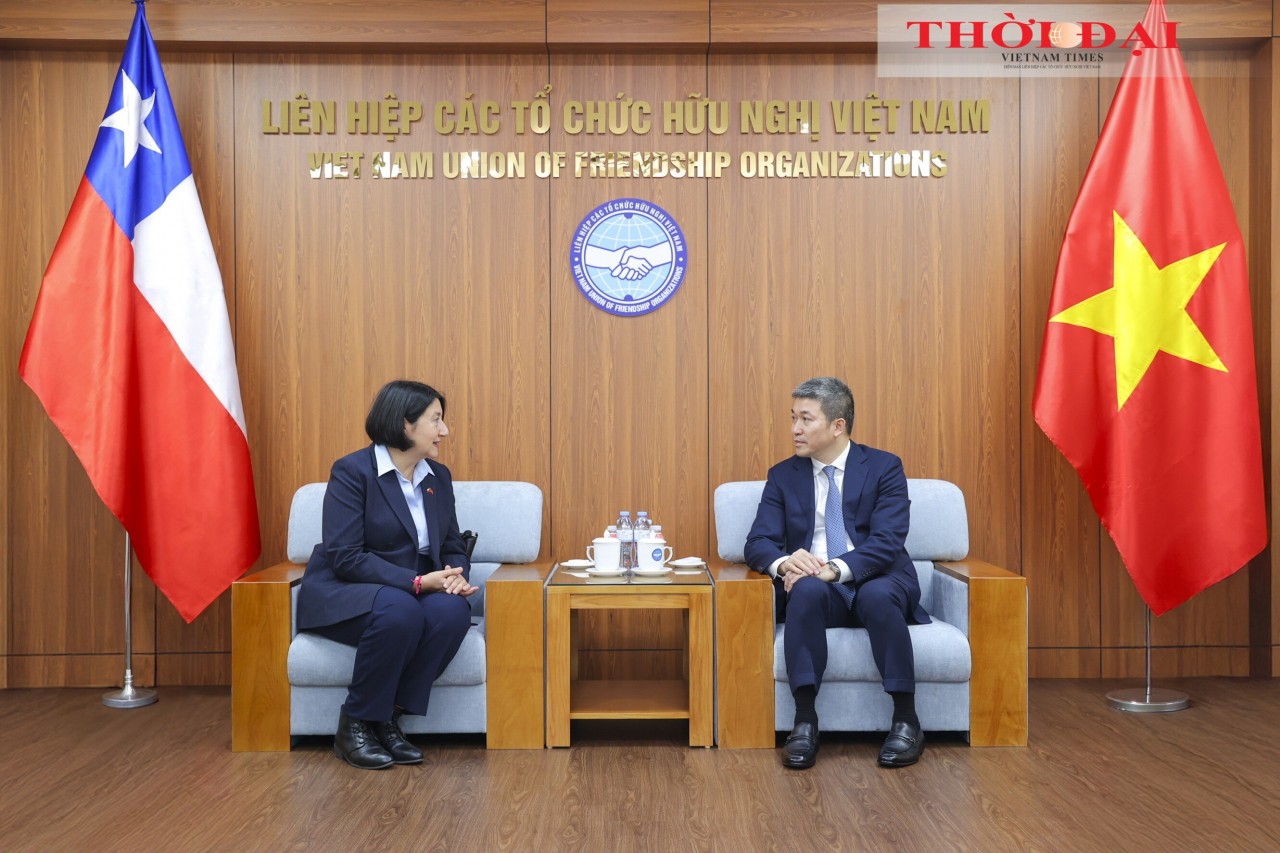 Friendship
Friendship
Promoting People-to-People Cooperation on the Occasion of the 55th Anniversary of Vietnam-Chile Relations
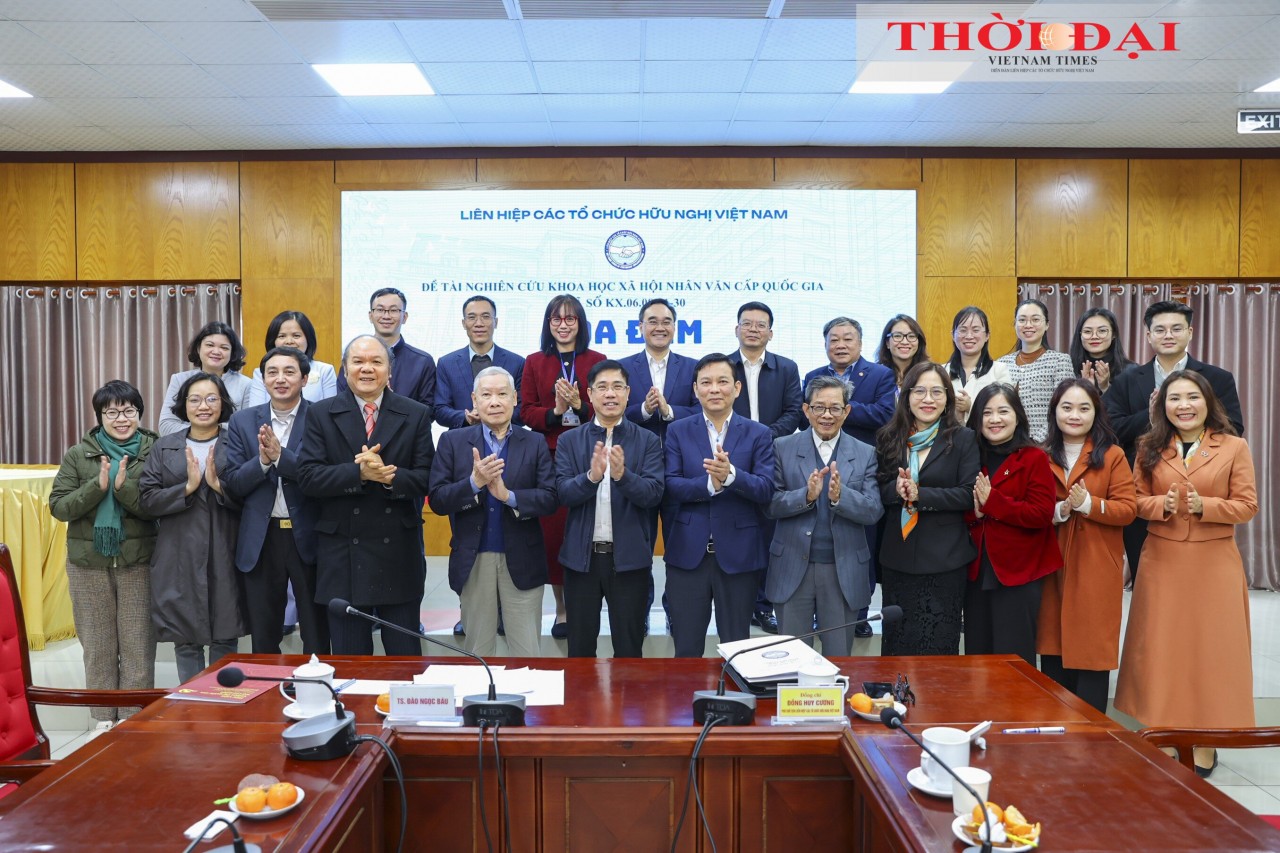 Focus
Focus
Seminar on “The Scientific Foundations of People-to-People Diplomacy in the World”
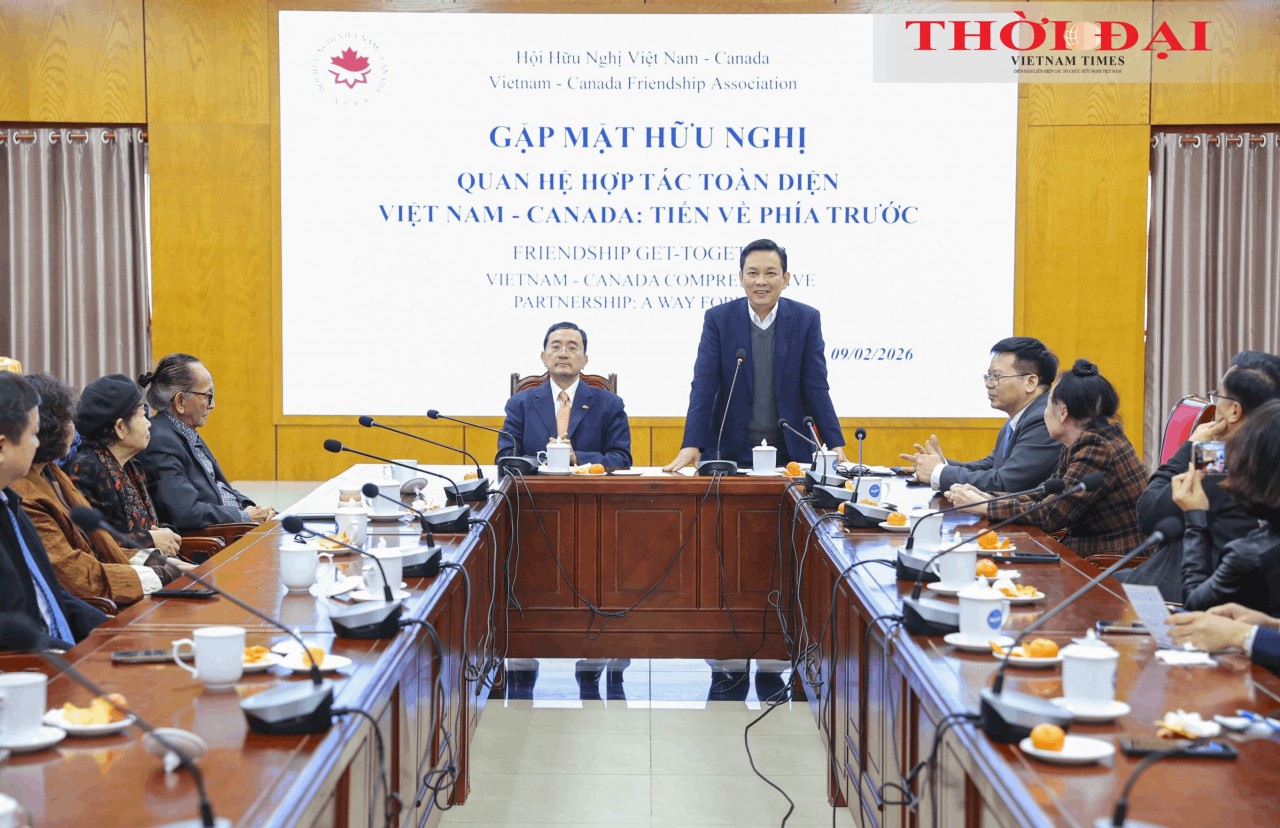 Friendship
Friendship
Vietnam-Canada Friendship Meeting: Advancing Comprehensive Cooperation through People-to-People Diplomacy
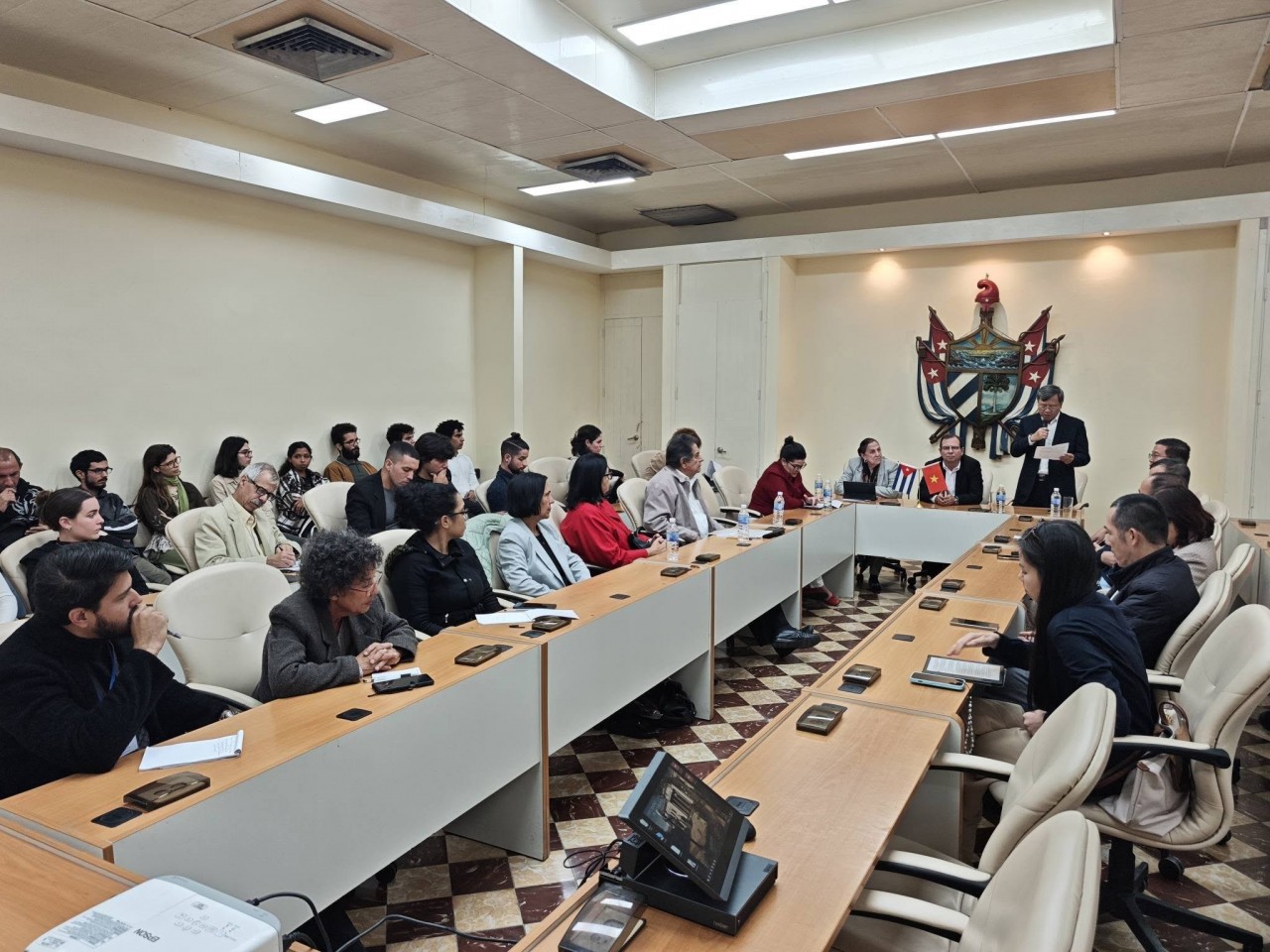 Friendship
Friendship




